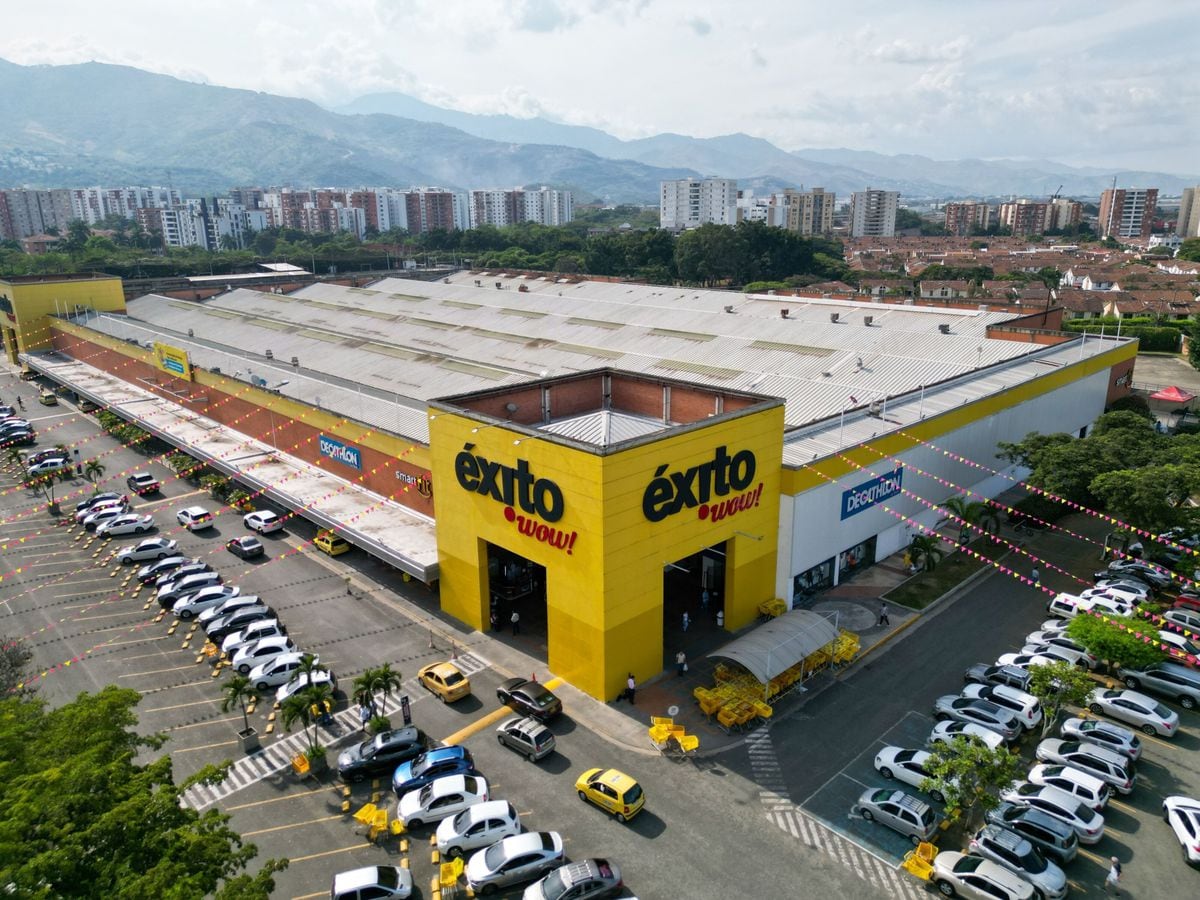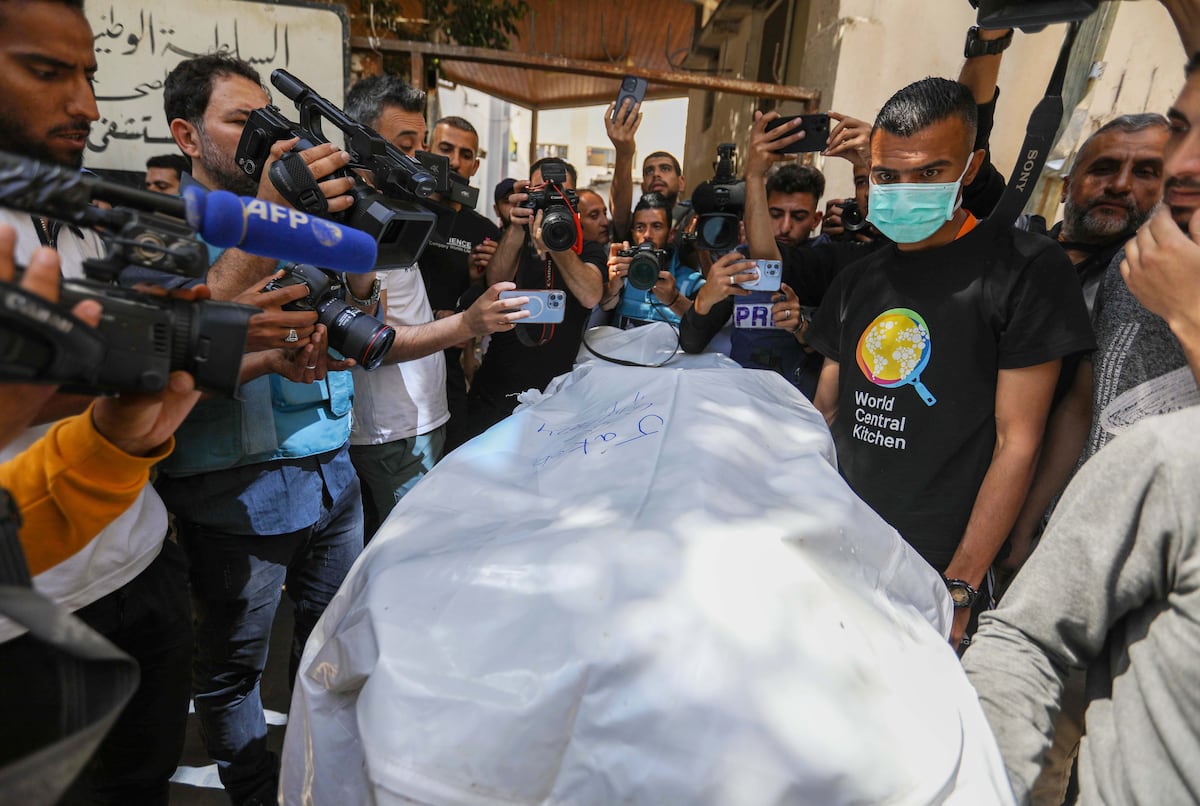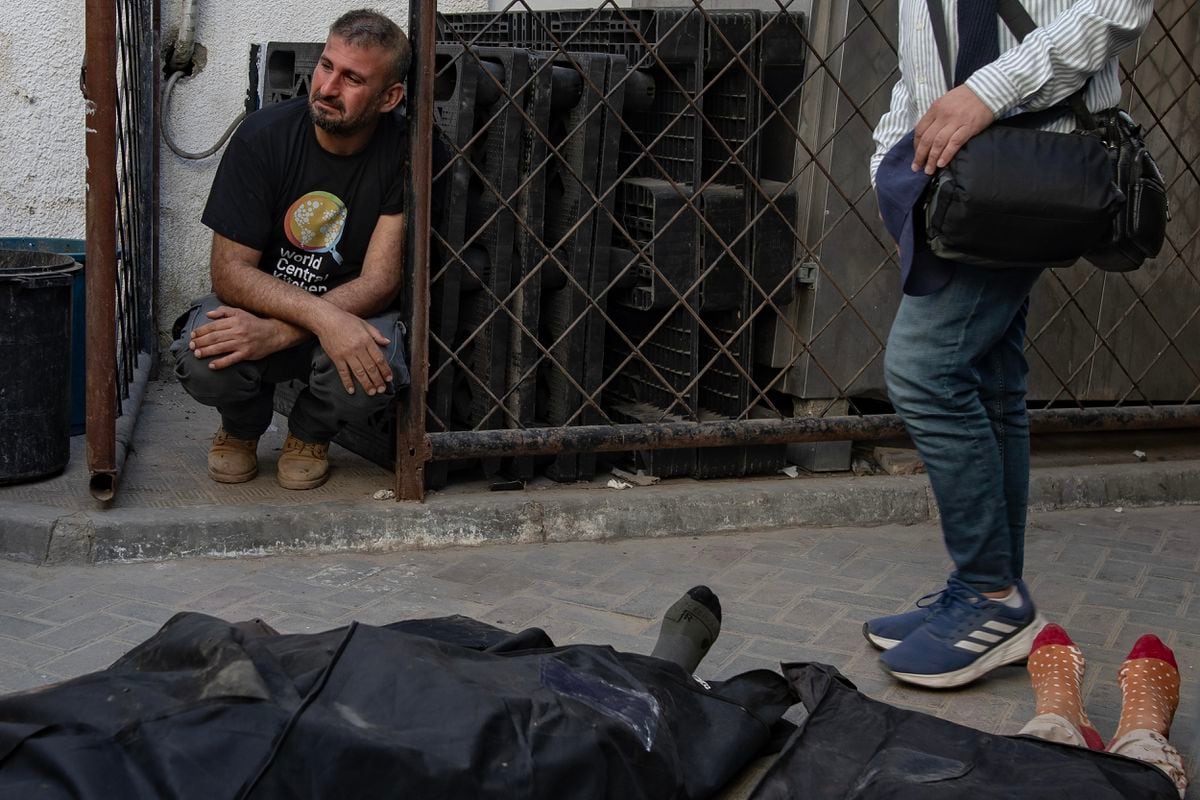El Paisnal is a flat and rural municipality of 15,000 inhabitants, an hour from the capital of El Salvador, where women walk with umbrellas to protect themselves from the mid-afternoon sun.
The urban area consists of four diffuse streets that end between banana and lemon trees and the center rises between the Church and the City Hall parking lot.
The town where the Jesuit priest Rutilio Grande was assassinated in the 1970s is run by the Farabundo Martí Front (FMLN), the party that emerged from the communist guerrillas, from a cold office with air conditioning at 16 degrees.
In front of the mayor's door, without air, a dozen neighbors wait patiently to ask him for help with medicines, explain a problem with boundaries or request support for school supplies.
Inside the office, the councilor Héctor Lara nervously moves his phone when he confesses that he does not use Facebook, Twitter, or Instagram and that he does not even have a computer.
“I don't know how you can work if you are in front of the screen all day.
Who am I going to be able to attend to if I sit there all day watching my cell phone ”, he says on a wooden table where the most modern is the stapler.
The mayor looks overcome by a reality that exceeds his 66 years, the vast majority of them militants in the FMLN party, which ruled the country between 2009 and 2019. “Young people are manipulated by social networks.
You are no longer old enough to burn your brain with a computer ”, he admits.
The world that is crumbling under his feet would also have set limits "Of course I am in favor of social networks, but I would have liked them to reach the town when it was educated," adds the old communist militant.
This Sunday, Mayor Lara is running for the third time in an election and if he succeeds, he will leave power with almost 70 years of age.
After many political battles, he has reduced campaign events due to tension.
"Before we used to make caravans and people came to tell us' count on my support ', but now they yell at us' return what was stolen," he says next to another office where the photos of Schafik Handal, Fidel Castro or Hugo Chávez hang.
"The followers that Nayib Bukele has been gaining are mainly ours," he admits, resigned to the tsunami represented by a 39-year-old president capable of mobilizing national public opinion through his Twitter account with more than two million followers.
The FMLN, which ruled the country for ten years, was born as a party in 1992 by bringing together the entire left that had fought during the civil war.
Two years later it won the elections in El Paisnal and since then it is one of the three municipalities in El Salvador that have always voted red.
However, in 2019 the people took a turn and supported for the first time, for the first time, someone who was not from the Front, but Nayib Bukele.
According to all the polls, Nuevas Ideas (NI), the
millennial
ruling party
, will win again by a landslide during the legislative and municipal elections to be held this Sunday in El Salvador.
El Paisnal is a classic Salvadoran town: with its martyr, its corruption, its visa office to the United States, its evangelical churches and its insults.
"It is difficult to campaign and be from the FMLN in this context," says the mayor.
"In the best of cases they tell you: I support you, but do not ask me to vote for your disgusting deputies," he acknowledges.
One block from the city hall, Salvador Chávez, 66, reads the press at his bicycle workshop.
To get there, you have to walk a few steps from the mayor's office and pass a stall that sells sugar cane, coconut, tamarind or chan seed sodas.
“He is a young president and there is an illusion among the people that someone new is coming.
They call him a dictator, but isn't capitalism a dictatorship? ”Asks this old member of the Popular Liberation Force, one of the families that make up the FMLN.
What he likes most about the young president "is that he makes his own decisions."
The least is "that he only listens to those who agree with him."
At the Bendición de Dios tortillería, 33-year-old Gisele de Hernández slaps one tortilla after another on a wood-burning comal.
"The president has complied and has given us bags of food, also the 300 dollars that he promised us due to the effects of the pandemic," he says.
"People are seeing that he is working well and doing things for the people."
His comal partner says that now he is going to vote with enthusiasm because he smells a change.
“He speaks direct and clear and tells truth.
People have already opened their eyes and have noticed.
Before I was from Arena (Alianza Republicana Nacionalista) and now I'm from him, ”says Marisa de Hernández, 54.
"Let them return what was stolen," they both end up laughing.
Although the president does not appear in the elections, his controversial figure centers everything.
Flor Chávez has lived in El Paisnal since she was born 28 years ago and works in a Lutheran church.
For a few months she has joined New Ideas, enthusiastic about Bukele.
"For the first time the aid did not go only to friends or supporters, but has included everyone," he explains.
"What is a dictator?" Says Flor Chávez, anticipating the question.
"Before they said he was homosexual, a drug addict or that we would all end up being Muslim and dressing like in the Middle East, but none of those lies affect us anymore," he says, rising to a wave of enthusiasm that the polls clearly show.
“People appreciate that we had food when we need it.
Bukele does not divide El Salvador, El Salvador was already divided ”, he sums up.
The main problem in El Paisnal is that almost a quarter of the population lives in poverty and the mayor's main achievement was to declare in 2016 the place “free of illiteracy”, a pride for the old left but insufficient to seduce a trapped youth in the 'Bukele effect' that pervades everything.
The average age of the country is 29 years old and, according to the electoral roll, almost half (48%) of the Salvadorans who will be able to vote on Sunday have an average age of 38.9 years: the same as the president.
The pride of El Paisnal is the figure of Rutilio Grande.
In this municipality the Jesuit priest was born and assassinated in 1977, considered a "martyr of the faith", when the death squads fired 18 shots at the entrance of the town.
The assassination of Rutilio Grande, a personal friend of Pope Francis and collaborator of San Arnulfo Romero, is considered by his biographers the turning point that made the Salvadoran saint move away from the elites and become a speaker of the Army massacres until he was assassinated in 1982. The remains of his loyal collaborator are buried in the center of the Church and his face appears on the town's coat of arms.
Its sepia-colored image appears on bags, T-shirts and key rings as a tourist attraction in a town with little to offer the visitor.
It is more than seven at night and on the side of the road, on a mud track, dozens of neighbors have been gathered to listen to a rally by the Nueva Ideas candidate, Reina Chávez, who is 42 years old and has a strong presence in Facebook.
But it is strange: it is night and there is no music, no lights, or public address system.
Neighbors are bored with the candidate's proposals to bring parks, education, work and health "first world" to the dusty place.
“We are going to build a cooperative where trainees will earn six dollars an hour.
Once he specializes, we will pay $ 15 an hour, ”Chávez repeats.
The candidate's speech would seduce anyone.
The large local fruit cooperative, Acopasca, pays $ 1.5 an hour, but the likely future mayor promises a salary four times higher.
The neighbors listen and collect the brochures until, late at night, a truck loaded with grocery bags bursts into the place and upsets the audience when it begins to distribute the heavy packages of food with the logos of the Government.
Suddenly, the dark place is filled with laughter and joy and the neighbors are diluted by the nearby hamlets carrying the bundle on their heads.
The only neighbor who comes to ask the candidate how the parks she has promised will be paid for has been silenced by the spontaneous with shouts of "give back what was stolen" next to his ear.
In the Paisnal, the old model sinks behind a pine desk, and the new one looks like the old one but with more megabytes.
Subscribe here
to the
newsletter
of EL PAÍS México and receive all the informative keys of the current situation of this country


/cloudfront-eu-central-1.images.arcpublishing.com/prisa/AWQDFA55JRFZ7EFY4XGGS3VAVQ.jpeg)
/cloudfront-eu-central-1.images.arcpublishing.com/prisa/RHYRDMQQ7BG5JOUSKAXBLKE6YE.jpg)





/cloudfront-eu-central-1.images.arcpublishing.com/prisa/TSUEZ7K7S5HNDE7GY53532ZZ7A.jpg)





